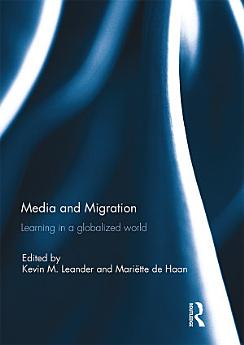Media and Migration: Learning in a globalized world
About this ebook
The contributors to this book show how learning trajectories of individual learners become defined by broadly distributed networks and knowledge systems. Learning in stable, closed, and culturally uniform settings is becoming the exception rather than the norm. While immigrant youth are often associated with juggling multiple lives or worlds, such juggling is increasingly becoming typical for all youth living with new media. The book therefore addresses youth learning more generally in relation to media, globalization, and diversity, as well as the digital learning practices of immigrants and non-immigrants. This book was originally published as a special issue of Learning, Media and Technology.
About the author
Kevin M. Leander is Associate Professor of Language, Literacy and Culture at Peabody College of Vanderbilt University, Nashville, Tennessee, USA. His research interests include the new literacy practices of youth, spatial approaches to understanding youth identity and learning, research on new media, and media and migration. His recent thinking centres on designing new learning environments, including hybrid environments that traverse online and physical spaces. He has published widely in journals such as Review of Research in Education, Ethos, Reading Research Quarterly, Journal of Literacy Research, and Cognition and Instruction.
Mariëtte de Haan
holds an Endowed Chair on issues of Youth and Education in the multicultural society in the Department of Education and Learning at Utrecht University, The Netherlands. Her earlier work focuses on the transformation of learning practices in a Native American community in Mexico, and on inter-ethnic knowledge sharing in multi-ethnic classrooms in the Netherlands. Her latest research focuses on how new, innovative practices of learning developed online can inform traditional formal education practice. Her work has been published in journals as Human Development, Culture & Psychology, Anthropology and Education Quarterly and Comparative Education Review.



